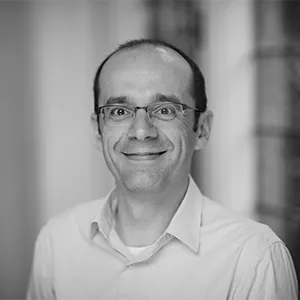Specifying Practices Enabled by Cycling In FIfteen-minute Cities (SPECIFIC)
Overview
The project aims to combine social practice theory, thinking on socio-spatial justice and urban development, and transdisciplinary action research to co-create a tool to facilitate successful implementation of the 15 Minute City concept in context-sensitive ways in low-density, peripheral settings in small and medium-sized cities in Europe.
The project aims to combine social practice theory, thinking on socio-spatial justice and urban development, and transdisciplinary action research to co-create a tool to facilitate successful implementation of the 15 Minute City concept in context-sensitive ways in low-density, peripheral settings in small and medium-sized cities in Europe.
The 15-minute city (15MC) concept has huge potential in accelerating urban mobility transformations towards environmental sustainability, public health and social inclusion, especially if cities are organised around cycling as the default transport mode for non-walkable distances. Significant challenges remain, however, not least because most Europeans live in lower-density, car-oriented areas away from urban centres where fulfilling all daily needs on foot or by bike is difficult and implementing the 15MC concept can increase socio-spatial inequalities.
Strategic learning about upscaling and accelerating transformations towards just cycling-based urban development in low-density settings will be cultivated through transition experiments focused on cycling in five cities – Bellinzona, Bristol, Graz, Maastricht, and Poznań– and the creation of a transnational meta-lab where lessons from individual cities will be generalised.
The TSU team will be working with last-mile delivery company Zedify to test the efficacy and cost effectiveness of various micro-consolidation hub arrangements in the low-density outer areas of Bristol. The SPECIFIC tool will help practitioners across Europe to reimagine and repurpose low-density, peripheral settings into areas where diverse cycling practices prevail and allow people of different backgrounds to fulfil their daily needs.
For more information, please visit the SPECIFIC project website: www.15mcityspecific.org
In brief
Duration
2024 - 2026
Funder
ESRC
Partners
Zedify
Adam Mickiewicz University, Poznan; Maastricht University; University of Applied Sciences and Arts of Southern Switzerland; University of Graz; Zedify; Fyrtel; Bristol City Council; City of Bellinzona; City of Graz; City of Maastricht; Poznan City Hall; Pro Velo Ticino; Associazone Traffico e Ambiente; Zuid-Limburg Bereikbaar
Principal Investigator
Researchers
Contact



